INTERVIEWS WITH PROFESSIONAL COMMUNICATORS
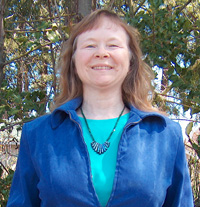 Denise Schultz has had a healing practice for about 30 years. She has been a professional animal communicator and medical intuitive for over 10 years. She is a Reiki Master, a Yuen Method practitioner-in-training with over 1000 hours experience, a CMT (certified massage therapist) and a ULC Minister. She loves cats, cooking, cartoons, arts and crafts, music, singing, being in nature, and as many friends with fur, paws, hooves, scales, and feathers as she can fit in a day.
Denise Schultz has had a healing practice for about 30 years. She has been a professional animal communicator and medical intuitive for over 10 years. She is a Reiki Master, a Yuen Method practitioner-in-training with over 1000 hours experience, a CMT (certified massage therapist) and a ULC Minister. She loves cats, cooking, cartoons, arts and crafts, music, singing, being in nature, and as many friends with fur, paws, hooves, scales, and feathers as she can fit in a day.
**************************
How do you describe animal communication to those who are unfamiliar with what it is?
Animals communicate with each other in many ways, including telepathy. That is their native language, and how animals of different species can communicate with each other. Humans can also use telepathy. We are trained to ignore it while quite young, in favor of verbal language. But it is possible to regain our awareness and stop blocking it out. I have spent a lot of time doing this, but it can also happen in an instant, for anyone, without training.
What tips would you give to students of animal communication who are just starting out?
I am answering these remarks in a way that often assumes you are pros and that you are working, getting paid, etc. I know this is not necessarily the case, but I want you to feel what it is like to approach animal communication professionally. It is good for the animals and for you, to see it this way.
• Take a Reiki class. This is the best way I know to increase your sensitivity and awareness to energy. It will help you to recognize telepathy, and give you a healing skill you can use in your communication. Find someone who will teach the three levels separately, with time in-between levels to assimilate your healing skills and to practice with humans and animals. Don’t settle for someone who teaches two or three levels in one or two weekends. That is a disservice to Reiki, to the animals, and to you.
• We are not just translators. We can do a lot more with our sensitive, caring insight than just translate. Inter-species counseling skills are very valuable, and two of the best places I know to study are with Penelope Smith (http://www.animaltalk.net) and Dr. Jeri Ryan (http://www.assisianimals.org/). Also, not all counseling skills are gained in certification or training. Spiritual counseling is at the center of many communication practices. You will need to explore this in your own life, not just with your teachers and mentors.
• Start or increase your meditation practice. Don’t freak out! This is EASY! You can use Google shopping to find a meditation CD which uses “binaural beat” encoding. That means that you will wear headphones, and the sounds delivered to the two ears will be distinct from each other. Binaural beat meditation automatically creates theta brainwaves (deep meditation) by the relation between the two different sounds reaching the two hemispheres of your brain. Some brand names are HemiSync (which holds the original patent) and HoloSync, and many other versions are available; I especially like the ones with nature sounds. We have been culturally trained that meditation is difficult to do and that it’s hard to maintain a schedule of it. Neither is true.
Binaural beat meditation is a technology which delivers meditation to us. Once you begin to experience the benefits, it is not so hard to commit to the schedule. Meditation is helpful for fine-tuning your awareness, and for your well-being and ability to deliver communication on demand when necessary. Listen to the CD once a day if possible. It is important not to only listen to it just before you go to sleep. Theta brainwaves are either deep meditation or lighter sleep. If you are too tired, you will sleep instead of meditating. Many people will fall asleep sometime during the CD, but if you are awake at least part of the time, you will get the benefits of the meditation and not just the sleep.
• Find a mentor. They may be an animal communicator, a vet, a priest, or that old lady you always meet at the store. It’s up to you to attract the right person for you. This is someone who will help you to achieve depth in your work. Whatever your native skills already are, they will add new facets to your awareness.
• As soon as you can, consider charging for your work. It helps clients to take you seriously, and they put more into the session in order to get more out of it. Also things that increase your sense of professionalism are good for you and good for the field. You can start with a lower price, or work by donation if you wish.
• And saving the best for last, my number one tip is: work with animals whom you don’t already know! This is surprising for many people, who assume they will do best with animals in their own family. Not true! With our own animal family we have an inherent bias, because we are stakeholders. We want Skippy to eat his dinner in the kitchen and not drag it onto the rug, or Bella to stop hunting birds in the back yard. That is not the place to start. Those are advanced negotiations, because we are family.
Would an MD start to do surgery on their own family? No! In my animal family, when things get serious, I call another communicator. If you start by trying to practice with your own animal family, you may never find out how good you really are. It is similar when working with friend’s animals whom you know pretty well. Especially as a beginner, it is much harder to differentiate between your rational mind and your intuitive awareness when it is someone you know ahead of time. So give yourself a break and try communicating with animals you don’t know that well. Where there is an absence of rational knowledge about the situation, the ‘still small voice’ of your intuition can be heard more easily. (*Note from Caat: Couldn’t agree more. This is why I started this practice board, so people could practice on animals they don’t know!)
Can you share some verifiable questions to ask the animals for people just starting out?
I believe pursuing verifiable questions, especially at the beginning, is the wrong direction to go. We want to build relaxation, for ourselves, the clients, and especially for the animals. Relaxation creates openness to the information that is already there.
Have you ever asked someone a direct question and they answer about something else entirely? The doctor might ask you, ‘how is your hand’? And you don’t really care about your hand, you’re really worried about this mole on your face – is it a skin cancer? So you start talking about the mole. Imagine that most animals may never have had the opportunity for a real communication. Now that they have your full attention, maybe they don’t want test questions, maybe they want to talk!
I find that verification comes much more easily in the course of an unstructured conversation. For example, I would never have thought to ask a cat, ‘how many water bowls do you have, and where are they’, but during the course of the communication, he reveals that he has three bowls, and with each of them he has to turn his back to foot traffic. He would rather his people moved the bowls away from the wall, so he could have his back to the wall, and not worry that someone is going by his tail while he’s drinking. The client was amazed at the level of verifiable detail, but the quest was not for verification, it was for what the cat needed. This cat was having kidney problems, and making drinking easier for him was very important.
Really, I believe that in all communication the animal is more important than our human effort to improve or verify our skill as communicators. If we just put the animal first, it all goes so much better, for everyone! If you conduct a ‘normal’ conversation (rather than directly pursuing verification), much verifiable information will arise, without the tense struggle to be right, and get a telepathic ‘hit’.
Do you lean more towards getting your messages visually, audibly, or sentiently, or is it a combination of all. Does it change with the animal?
People tend to have a native style. Animals tend to have their own native style. I tend to get a gestalt (overall awareness greater than the sum of the parts). We all adapt to make it possible to get the information across. I believe there are the main styles or channels, like getting visual or auditory information, feeling physical sensations, feeling emotions, and so forth, but also there are a surprising number of communicators who get information in the form of song lyrics! You never know how the information will arrive. I find the primary quality of communication is not the channel by which it arrives, but the amount of energy with which it is delivered.
Many animals will ask for specific foods or supplements, even some I have never heard of before ? like the horse who asked for a blood builder and telepathically showed me the label on the bucket, and it turned out another horse in that barn was getting that supplement and he wanted it, too. So product and treatment requests are a kind of channel too. I worked with some bees having trouble with mites, who asked to be smudged with untreated tobacco. It turns out that is a very old beekeepers trick. Many times I have had animals tell me specific acupuncture points or other information which I have no training in, and the vets verify that was the correct point, or the client says, ‘oh, yes, the vet is already working that point’. It is as if there is a vibrational awareness of everything that is in our heads or theirs, in current or past culture, and they will do whatever it takes to get the message across.
Do you use the sense of smell or taste? If so, how does one become more proficient at that?
They communicate the information in a vibrational way which is not necessarily tied to my actual organs of sense. Animals may show me smells and tastes which I cannot recognize and colors which I cannot see, but there is a vibrational quality, even if it is outside of my personal abilities to recognize it with my own senses. My proficiency comes from being willing to stay with those unrecognizable sensations until I find a correlation with something recognizable to me or other humans working with the animals. So if I describe a smell and I find myself making a particular face, I describe my funny face to the client too, and she says, ‘oh Mickey always makes that face when I give him his probiotics’. To me, probiotics have no smell, but in this way Mickey establishes that we are talking about the probiotics, and his message was, ‘I don’t like the smell, but they’re helping me’.
Why do you do what you do (communicate with animals)? And how do you feel it benefits humanity? How do you feel it benefits the animals?
I communicate with animals because I love it more than anything. I feel more whole and more right with the world, more in the service of the Divine, when doing this than anything else. I believe this world is entirely out of balance too far to the benefits and rights of humans at the expense of animals and plants and the Gaia essence of the whole planet. The benefit is that I give animals a voice in the world which they have not had for most of human existence. And just maybe, giving their voice an outlet, one-at-a-time in consultations, or many-at-a-time in articles and books, we can shift the balance in their favor.
Humans can become more responsible and committed to benefit animals, plants, and the planet, and animals can come back into the better balance they deserve if we do so. A vet just sent me an article that said that three Canadian MDs are trying to force Canadian legislation that would keep animals out of the cabin on commercial air flights, to protect humans with allergies. This vet movingly described how he had been called on to examine a cat who was dead, frozen stiff from riding in an unheated cargo hold. He asked, how can we justify that we are the only species that matters?
I believe that animal communication helps the individual animal to have their say, ask for help, become a ‘person’ in our eyes, and helps to shift human understanding to include animals as more important in their own lives and to the planet than just being companions and working animals to us.
What would you recommend to students who are juggling with their full time jobs and/or school and/or children and trying to squeeze in time to do AC?
I know a high school student, 16, who makes time to study American Sign Language (ASL), a college course, when he already has an 8 AM to 6 PM schedule 5 days a week, including an after-school job, plus tutoring younger students, plus his own homework and extracurricular activities, friends, etc. He does the ASL course because it is important to him to be able to communicate with the deaf. If he can do it, so can we.
I think we get caught up in the ‘how’. How do we find time to do it? How do we get good at it? It is better to say: today, I will spend five minutes doing some little piece. I will go online and find a meditation CD. I will join an animal mentors call. I will hold up two different cans of food to my cat (knowing she can’t read the label or smell inside a steel can) and just notice that she sniffs at them, then chooses one. I will listen to the grackles in the tree at sundown, and just see if I can get any sensations or information from it. Communication begins with awareness. We have at least some time every day to explore our awareness.
Over time these efforts add up, and over the years as we get choices to eliminate something else from our packed day (now your son is in preschool, now your daughter has a job, your husband is retired) we will find the time to do more of this, because it matters. Animal communication is something to be doing for your whole life. If you can’t afford or don’t have the time for a course or a book this year, maybe next year. Tell your friends that it matters to you, and they will bring you their stories. That is how we get more time for it. If we only think about wanting more time for it when we don’t have it, and we give up, that is a loss to us and the animals. Think about the big picture, finding time over the course of your lifetime. Opera singers and sports teams schedule for years ahead, you can too!
What would you recommend to students who shy away from practicing because they feel they’re “making it up?”
I say, try really making it up. Don’t fight it, go with it. Write some fiction from the animal in question. Then when you have really made it up, notice that some parts of what you wrote feels real to you, but there is an edge, a contrast with other things. Your rational mind will do some of the making up, and your intuitive sense will say yes and no to the things which are real and not real. You are learning to calibrate yourself by noticing what feels real and what doesn’t.
An example of calibration is this: one time I observed a chiropractor working with a client’s dog. After a particular spinal adjustment, the dog told me she was thirsty. I asked for a break for the dog to get a drink. The client said, “I heard that! But it was so soft.” I said, “There is your calibration; you are listening to find that very soft voice. Now that you recognize it, it will be much easier.” Then the dog went and drank a whole bowl of water!
Do you see how it is better to find calibration and verification where they just show up in the course of the conversation? The calibration gets easier with practice. But don’t make verification the center of your practice. Then you will be practicing to make things hard. Make relaxation the center of your practice, and you will be practicing to make things easy.
When skeptics challenge you, how do you handle it? Do you answer at all, and if so, how do you respond?
This one is worth a whole article in itself, but I will try to hit the high points. I deal with it on a case-by-case basis; just as a stand-up comedian does not have a one-size-fits-all response to hecklers.
Some skeptics just want to know if I believe in my own work. I can tell them I’ve been confirmed by X rays, MRIs, blood and urine tests, acupuncturists, vets, and chiropractors, etc. Things animals have told me about their households have been verified by clients, neighbors, other family members, etc. My stories are so specific and there are so many of them that people tend to see that I couldn’t have made it all up.
Even skeptics have animals who need their needs met. I will try to help everyone I can, within the conditions listed below.
When a client is dissatisfied with a consultation, I give them a refund, immediately and in full. I will suggest several colleagues for them to consult if they want to continue with animal communication now or in the future. I don’t want the animal to lose the chance to have a voice if there was a bad fit between the client and me. I like to assume that someone with a different style or tone could accomplish a connection which I did not. Very often in these cases the difficulty is that the animal has needs or opinions which conflict with the client. Also after we get off the phone, I take a moment to explain to the animal what happened, and let them know I will hold them in my prayers, for them to get their needs met. I ask the animal, if they have a chance to talk with another communicator, to please give that person the chance to accomplish what I did not, and not to give up hope.
Sometimes I am not able to reach the animal – they may not have a good feeling about me, not want certain things looked at, they may be skeptical animals: ‘I’ve talked to humans before and it didn’t go very well.’ These are most delicate consultations. I try to find out what they want without directly asking. If I can get them talking, I can probably help them.
Skeptics in general are challenging us to prove things to them. They may ask trick questions, or even make up an animal to test us. Usually you can feel the dark and sticky energy around those people, and avoid working with them. You can say you are not taking any new clients right now, etc. Trust your intuition about the client, not just the communication.
Some skeptics are genuine explorers, really wanting to believe there is more to the world than their rational minds can perceive. These people are more worth working with. But I tell them straight out: you have to give your animal permission to speak freely to me, or they will sense your distrust of animal communication and/or me, and clam up. If a child sensed that their mother did not trust a stranger, they might not talk, or say weird things to throw the stranger off track. This can happen with animals too, and unfortunately it can set up the animal for multiple disappointments, with other communicators, vets, etc.
“First do no harm” is a good policy. If the session is not going well, and you push too hard, you can harden the person against trying with another communicator. If you feel like it is not working, say so. It is okay to say the “intensity” (I don’t say the client’s ‘tension’) makes it kind of hard for me to hear what the animal has to say, so maybe we could try another time, or another practitioner, etc.
You may have a specialty which makes you a better fit for some kinds of clients than others. Get to know other communicators (even if you are all just getting started), so you have a referral network. I have a colleague who excels at after-death contacts. I’m good at that too, but if a particular session is not working, I can refer that client to her, because they may be a better fit. I have a colleague who specializes in flower essences (and in her hands it is both an art and a science, amazing). In those cases where I feel this is not something that a ‘talking cure’ will help, which needs vibrational healing, I can refer those clients to her. Kay Aubrey Chimene, of Grand Adventures Ranch, is the best bio-nutritional therapist I have ever found. Usually even a skeptic who does not believe in ‘healing’ or ‘talking’, can get help for the animal’s physical well-being from Kay. Wherever a skeptic runs into a stopping point with me, I am looking for something they can fit into their world view, which will help the animal.
I have a scientific background, so I am often a good fit for scientists and medical practitioners. Recently, for over a year, every new client was a nurse, a nurse-practitioner, or an MD, with the sole exception of a PhD geologist! I ease their skepticism by being able to speak their language. Here is a case where “Know thyself” comes in handy. This is where I fit into the referral network from other communicators to me.
Some skeptics are wanting to expand, some to attack. I try to spend time with the former, and defuse the latter. Be aware that they may be polite to your face, and then get off the phone and talk it over with their spouse and then ask for a refund. It is even okay to provide a refund if they do not request one. I may have done a fine job, but I can still tell they are not comfortable. If I get off the phone and it does not feel right, sometimes I call or email them and say, “There will be no charge for this session because I don’t think it went as well as I would like. I hope you will try animal communication again with someone who is a better fit for you and your animal, and these are several colleagues I recommend.
In all cases I want to be an ambassador for animalkind, and for animal communication. If I can’t accomplish either of those things, then it is okay to let go and go.
How do different communicators work? (Great question, Denise. Thanks for that.)
Did you know that some communicators only take the questions beforehand, work ‘offline’, then give you a report afterwords by email or phone?
Others work only in person.
Some have to have a picture before the session.
Some want no information before the session at all, or they feel it gets stale.
I don’t work with pictures because they tend to tie me to the time the picture was taken, instead of now. I work much better on the phone than in person. I discovered I have a ‘quiet zone’ near me where I don’t hear as well. I have come to understand that this keeps me from going crazy with the overwhelming amount of information I would get from walking into a store or anywhere there are a lot of people. But my own cat family gets a little frustrated with how dense I can be sometimes. ‘You want food, food, food, right?’ . . . ‘No! It was to scoop the litter box!’ 😉
So maybe one of these alternate ways of working fits you better. Or maybe you have another way, or will start with the easiest one of these for you, but add other ways as you get more experience. Just keep at it. You have a whole lifetime of animal experiences ahead of you.
*****************************
Thank you sooooo much, Denise, for your insight, time and effort.
You can find Denise at:
Website: www.deniseschultz.net
Blog: www.deniseschultz.com
Voicemail: (530) 926-1160
Denise says: I do animal communication, energy healing, and mentoring. My most recent mentoring client is a real treat. She is a young vet, several years out of vet school, who told me that she learned more about holistic vet care from me in an hour than she did from 2 years of belonging to a monthly holistic vet club (Yea!).
And you know what, some of it I learned on my own, but a lot of it I learned from the animals and the clients. It is the continuing experience that fills my knowledge banks. That is why I am more in favor of mentoring relationships than certification procedures. We need the kind of breadth that we can only get with experience. Because the cases come up in a practice, not during a class, a mentor can bring you into more situations than a class will.
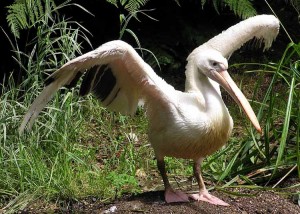 Pelicans know how to adapt to the conditions in which they live. Despite their large size, they are deceptively light. This makes them buoyant and they float effortlessly on the water. And although, they may, at times, have trouble taking off from the water’s surface, they persevere, not allowing themselves to get bogged down in the water. (symbolically, water = emotions)
Pelicans know how to adapt to the conditions in which they live. Despite their large size, they are deceptively light. This makes them buoyant and they float effortlessly on the water. And although, they may, at times, have trouble taking off from the water’s surface, they persevere, not allowing themselves to get bogged down in the water. (symbolically, water = emotions)
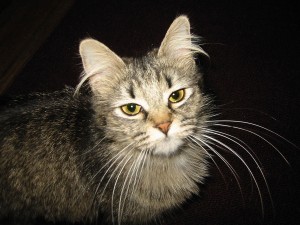 People need time to grieve. If someone says “It’s too soon” that means “It’s too soon.” It doesn’t mean that anyone has the right to guilt that person into adopting by saying things like “Can’t you find room in your heart for these kids?” “You’re such a good mother, “ “If you don’t take them, they’ll have a terrible life.”
People need time to grieve. If someone says “It’s too soon” that means “It’s too soon.” It doesn’t mean that anyone has the right to guilt that person into adopting by saying things like “Can’t you find room in your heart for these kids?” “You’re such a good mother, “ “If you don’t take them, they’ll have a terrible life.” 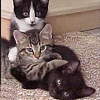 How do we know when we actually connect with an animal? Is it different for everyone? I’ve tried to remember what I was feeling when I got a correct “reading” but this hasn’t worked very well for me. Do any of you get any specific feeling when you really connect with an animal?
How do we know when we actually connect with an animal? Is it different for everyone? I’ve tried to remember what I was feeling when I got a correct “reading” but this hasn’t worked very well for me. Do any of you get any specific feeling when you really connect with an animal?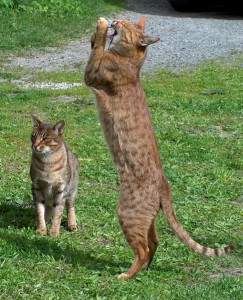 and to be confident enough that when they are saying ‘no’, you can know when or when not to say … “Yes!” There’s a strength in the things that I feel. Some things are a weaker feeling, where I know I may be on the periphery of something, but I’m not quite locking in. Other things, however, are very, very clear. I think I mentioned recently about a cat showing me a sink. No matter how many times the parents said ‘no’, I kept seeing that sink. Trust yourself. I had to go through several incarnations of describing it in certain ways to them, adding more detail each time, before they said, “oh, yes, there’s a sink in there.” (THANK you!)
and to be confident enough that when they are saying ‘no’, you can know when or when not to say … “Yes!” There’s a strength in the things that I feel. Some things are a weaker feeling, where I know I may be on the periphery of something, but I’m not quite locking in. Other things, however, are very, very clear. I think I mentioned recently about a cat showing me a sink. No matter how many times the parents said ‘no’, I kept seeing that sink. Trust yourself. I had to go through several incarnations of describing it in certain ways to them, adding more detail each time, before they said, “oh, yes, there’s a sink in there.” (THANK you!)  I lock into the personality (or canineality, or felinality per se) first, so that we establish I am talking to their child. Once you get past that point, the parents tend to relax a bit. It’s those little tidbits of “known items” that you want to throw in every once in a while during the reading, to keep them – and you – understanding that you are connected. That’s what validations are for, and why the
I lock into the personality (or canineality, or felinality per se) first, so that we establish I am talking to their child. Once you get past that point, the parents tend to relax a bit. It’s those little tidbits of “known items” that you want to throw in every once in a while during the reading, to keep them – and you – understanding that you are connected. That’s what validations are for, and why the  Denise Schultz has had a healing practice for about 30 years. She has been a professional animal communicator and medical intuitive for over 10 years. She is a Reiki Master, a Yuen Method practitioner-in-training with over 1000 hours experience, a CMT (certified massage therapist) and a ULC Minister. She loves cats, cooking, cartoons, arts and crafts, music, singing, being in nature, and as many friends with fur, paws, hooves, scales, and feathers as she can fit in a day.
Denise Schultz has had a healing practice for about 30 years. She has been a professional animal communicator and medical intuitive for over 10 years. She is a Reiki Master, a Yuen Method practitioner-in-training with over 1000 hours experience, a CMT (certified massage therapist) and a ULC Minister. She loves cats, cooking, cartoons, arts and crafts, music, singing, being in nature, and as many friends with fur, paws, hooves, scales, and feathers as she can fit in a day. They are the largest land animal, strong & powerful, but they are extraordinarily loyal & emotional. Baby elephants will help their younger brothers & sisters; adult elephants will help their ill friends in their herds. Elephants live in a structured society.
They are the largest land animal, strong & powerful, but they are extraordinarily loyal & emotional. Baby elephants will help their younger brothers & sisters; adult elephants will help their ill friends in their herds. Elephants live in a structured society.  Walrus as an Animal Spirit Guide
Walrus as an Animal Spirit Guide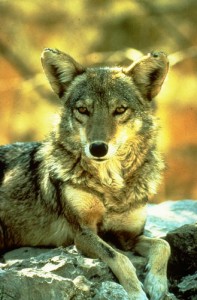 COYOTE AS AN ANIMAL SPIRIT GUIDE
COYOTE AS AN ANIMAL SPIRIT GUIDE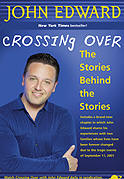
 As
As 